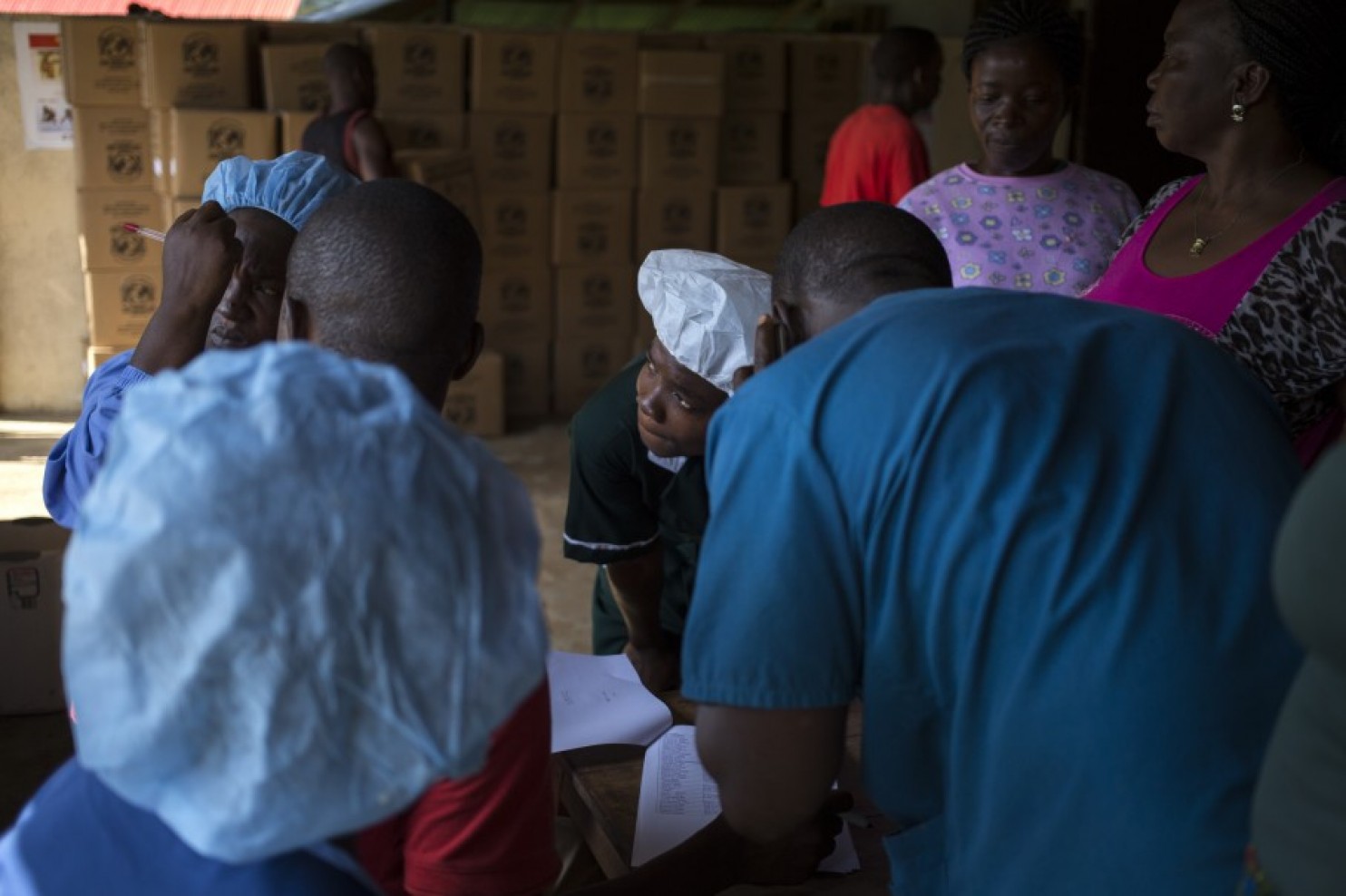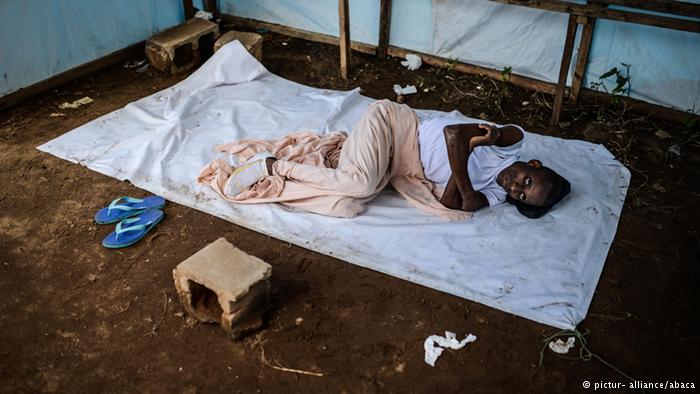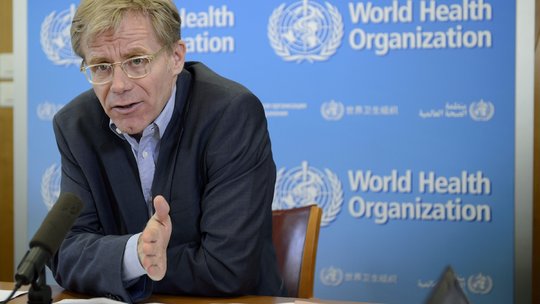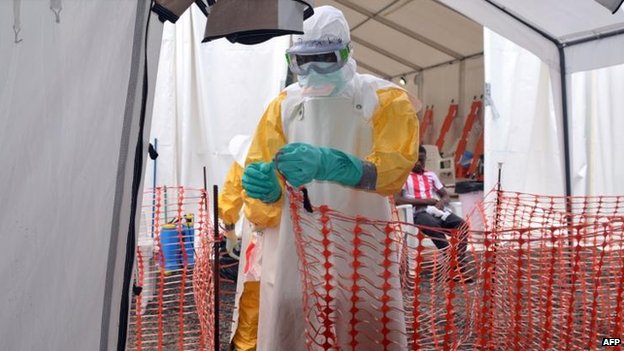After Outbreak, Finally, Some Good News In Liberia As Ebola Shows Signs Of Slowing Down
WHO is both cautiously optimistic and terrified about the news.
On Wednesday — three months after declaring Ebola epidemic a global emergency — the WHO said that new infections in Liberia, one of the worst affected countries, appeared to be declining
Nurses working at the Ebola holding center at the Ganta Hospital wait in line Oct. 17 to receive rice in lieu of salary payment in Ganta, Liberia. The staff was waiting for the arrival of an Ebola Treatment Unit to accommodate the patients in the city
Image via The Washington PostWorld Health Organization officials on Wednesday said they see “glimmers of hope” in Liberia with strong evidence that the rate of new cases is declining for the first time since the crisis began. Bruce Aylward, the WHO’s assistant director-general in charge of the operational response, said during a news conference in Geneva that he is both cautiously optimistic and terrified about the news.
washingtonpost.com“It’s like saying your pet tiger is under control,” Aylward said. “This is a very, very dangerous disease.” He explained that “the danger now is that instead of a steady downward trend we end up with an oscillating trend where the virus goes up and down” because people let down their guard and areas that were becoming clear of the virus become reinfected.
washingtonpost.comThe recent decline in new cases is confirmed not only by the scores of empty beds in many clinics, but also by a decrease in laboratory confirmed cases and in burials, WHO official said
With falls in the number of burials and new admissions as well as a plateau in laboratory-confirmed cases, the WHO Assistant Director General Bruce Aylward said: "Do we feel confident that the response is now getting an upper hand on the virus? Yes, we are seeing slowing rate of new cases, very definitely."
aljazeera.com"We need to be careful here. This thing hasn't dropped off the cliff like that. We're seeing a reversal of that rapid rate of increase to the point that there seems to be a decline right now." As recently as a week ago, local officials expressed alarm that the virus was spreading exponentially.
aljazeera.comBut Aylward said it appears that strategies such as tracing and monitoring those who had come into contact with Ebola patients, the adoption of safe burial practices and an aggressive public awareness campaign were working. The important takeaway, he said, is that the “classic Ebola control strategies can work at scale.”
washingtonpost.comHowever, the organisation has also warned against complacency in international efforts to fight the disease, reports The NYT
The World Health Organization said there had been no increases in laboratory-confirmed cases of Ebola in the country
Image via nyt.comAt least 13,703 people have been infected by the virus, all but 27 of them in the three worst affected countries, Guinea, Liberia and Sierra Leone, according to the latest estimates cited by Dr. Aylward. Nearly half of the total is in Liberia. About 5,000 of the infected are reported to have died of the disease, which Dr. Aylward said still has a mortality rate of around 70 percent in the three countries most afflicted.
Despite the positive data from Liberia, Dr. Aylward was cautious. He expressed concern that infection rates could start to oscillate and that areas thought to have been purged of the disease could become re-infected. “I am terrified that the information will be misinterpreted and people will start to think, ‘Oh, great, this is under control,’ ” he said. “That’s like saying your pet tiger is under control. This is a very, very dangerous disease.”
Just a few mishandled burials could "start a whole new transmission chain and the disease starts trending upward again"
The better news from Liberia comes only two weeks after the W.H.O. warned the epidemic could produce 10,000 new cases every week by December. Dr. Aylward did not discard that assessment, but said it would be reviewed. The positive trend seen in Liberia should be taken as a sign that with the planned investments, “this virus can be stopped,” Dr. Aylward said. “But it’s going to take a very, very aggressive program of work to capitalize on those opportunities.”
The Ebola virus, which has no confirmed cure, began to spread in Liberia, Guinea and Sierra Leone in March. It is now considered one of the worst global health emergencies in modern times. Margaret Chan, the W.H.O.’s director general, has spoken in increasingly dire terms about the Ebola outbreak and the need to stop it. She told an emergency session of the United Nations Security Council last month that the outbreak was “likely the greatest peacetime challenge that the United Nations and its agencies have ever faced.”
INFOGRAPHIC: Just how deadly is Ebola? As compared in this Aljazeera graphic to other diseases, Ebola is not especially contagious - but has a far higher fatality rate and no proven cure.




